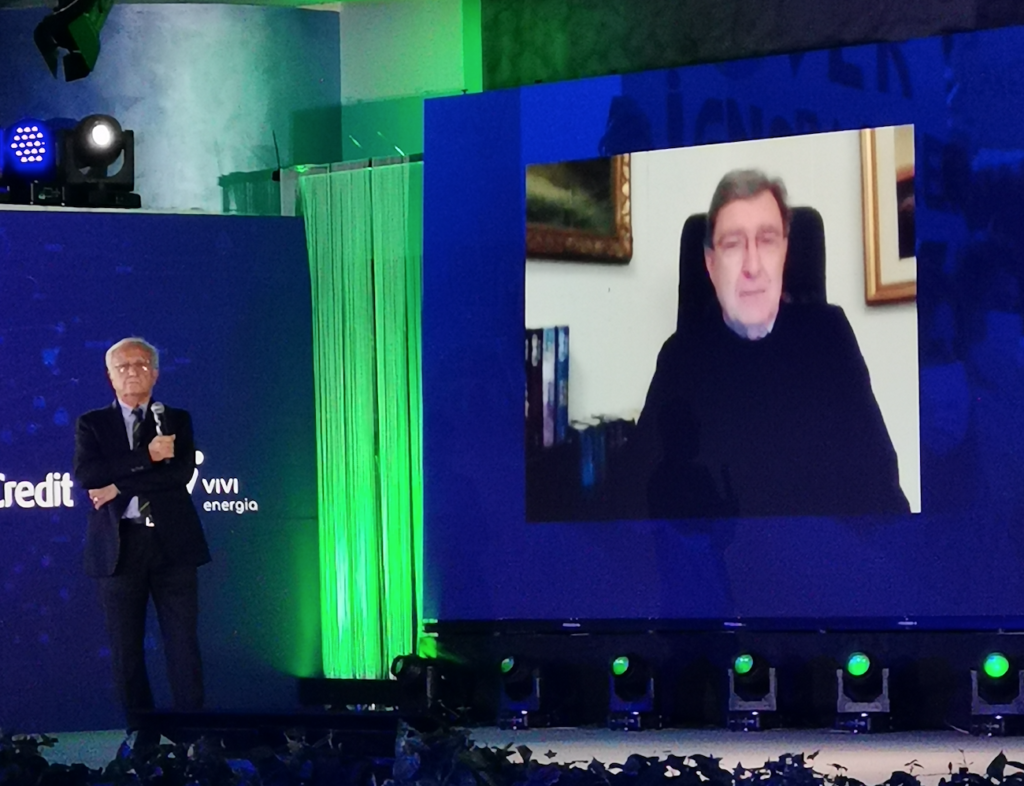
“It would be nice to start this future with a changed Constitution and we are about to succeed. If all goes as it should go, the last vote, I hope in favor, of the House, will deliver us a new constitutional charter. We are one step away from introducing the principle of intergenerational justice ”. This was announced today by the Minister of Sustainable Infrastructure and Mobility Enrico Giovannini, intervened in closing on Festival del Futuro, the initiative of Gruppo editoriale Athesis, Eccellenze d'impresa is Harvard Buiness Review Italy. “Article 9, which speaks of the protection of the landscape, of the historical and artistic heritage of the country, is enriched with the themes of the environment and biodiversity, also in the interest of the new generations. And then article 41 is modified, with which that integrated vision of economy, society, environment is realized. Investments and public and private expenditure will have to take into account not only the elements already mentioned but also health and the environment. Of the 62 billion investments made by my ministry, 76 per cent of internal spending projects go to counter the climate crisis ".
Festival of the Future: over 1 million views
Minister Giovannini's was the last speech of three days of debates, which saw the participation of over one hundred internationally renowned speakers in 15 round tables, followed in person and online, reaching over one million and 100 thousand views.
In the afternoon session we talked about inclusive society and corporate values, with Maurizio Ferrera, full professor at the State University of Milan and president of the Network for the Advancement of Social and Political Studies, Maria Pierdicchi, president of Nedcommunity, Mark Esposito, full professor of Hult International Business School and Harvard University, and Stefano Venier, CEO of the Hera Group. Esposito, in particular, underlined how companies are realizing how the measurement of value is not strictly economic, monetary, but a much broader concept, determined mainly by the planning of the great challenges.
Energy and climate change
On the subject of major challenges, the objective of decarbonisation was then discussed. Alexander Lanza, director of the Eni Enrico Mattei Foundation, George Appreciated, director of Enea's Energy Technologies and Renewable Sources Department, Carlo Stagnaro, research and studies director of the Bruno Leoni Institute, Andrew Bubble, president and CEO of ViviEnergia and ViviEsco, Alexander Blasi, special advisor to the Executive Director of Iea, talked about how the world of energy will change in the next ten years. Everyone agreed that electricity will play an increasingly central role in the future. The goal will therefore be to decarbonise the electricity system, managing to maintain it in a sustainable way. The approach cannot be separated from an energy mix, which will see renewable energies as protagonists, but also gas, hydrogen and nuclear power, which is slowly evolving from fission, the technology used so far, to fusion, which still requires some time to apply.
Themes closely related to the next round table, focused on "Climate change: how long do we have?". Donato Speroni, member of the ASviS secretariat and head of the FuturaNetwork project, Carlo Carraro, full professor of Ca 'Foscari University of Venice and vice chair, Intergovernmental Panel on Climate Change (Ipcc), Rosa tried to answer this question. Sangiorgio, Head of Responsible Investments of Pictet Wealth Management and Gianfranco Bologna, honorary president of the Scientific Community of WWF Italia.
The G20 of Rome agreed on the need to act to keep global warming within the maximum limit of 1.5 degrees Celsius for half a century, when a population of 9.7 billion people. Will this be achieved? The speakers agreed that governments are moving too slow: individuals do better, but not enough. A change of course is necessary, which starts first of all with a cultural revolution, while at the level of investments a leading role could be played by Recovery Plan.
Thanks from the organizers
Topical issues, which closed the last session of Festival del Futuro. The organizers of the event were satisfied, starting from Matteo Montan, managing director of Gruppo editoriale Athesis, who thanked everyone who attended the event, as well as Enrico Sassoon, director of Harvard Business Review Italy, which noted the high scientific level of the round tables, e Luigi advise, president of Gea, who recalled the social motivations of the Festival, bringing to attention the central themes of our future.
Future Arena
At the end of the day, space a Future Arena, the format dedicated to innovation and startups, which focused on the theme "We invest in the future", in collaboration withUniversity of Verona. Through a rich program of innovative pitches, some startups in the area and spinoffs of the Verona university presented their business to investors, experts in the sector, representatives of trade associations and institutions.






